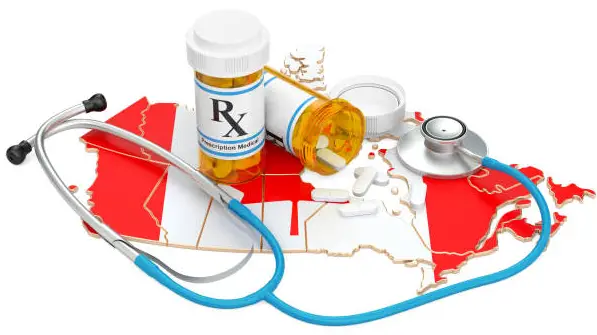Yes, you can bring your prescribed medications to Canada, but there are certain regulations and considerations you should be aware of to ensure a smooth process. For individuals planning to travel or relocate to Canada, a common concern is whether they can bring their prescribed medications with them. Understanding the regulations surrounding medication importation is crucial to ensuring a smooth transition and continued access to necessary treatments. This blog aims to provide detailed insights into the process of bringing prescribed medications to Canada.

Research Canadian Medication Regulations:
Before packing your medications, research the specific regulations governing the importation of prescription drugs in Canada. Health Canada, the country's health department, provides valuable information on their website regarding the rules and restrictions.
Read more: Are there eco-friendly transportation options in Canada?
Verify the Legitimacy of Your Medications:
Ensure that your prescribed medications are legal and approved in Canada. Some drugs may have different brand names or formulations in Canada, and it's essential to confirm that your medication is authorized for use in the country.
Check Quantity Limits:
Canada imposes quantity limits on the amount of medication that can be brought into the country. Verify these limits to avoid any complications at the border. If you require a larger supply, consult with your healthcare provider to explore alternative solutions.
Carry a Copy of Your Prescription:
It's advisable to carry a copy of your prescription, including information about the medication, dosage, and your healthcare provider's contact details while traveling to Canada. This documentation can be crucial if you encounter any inquiries from Canadian customs or healthcare professionals.

Read more: What is the cost of healthcare services in Canada?
Declare Your Medications at Customs:
Upon arrival in Canada, declare your medications at the customs checkpoint. Be transparent about the medications you are carrying, providing accurate information to the border officers. This helps prevent any misunderstandings or delays in the clearance process.

Understand Controlled Substances Regulations:
Some medications, such as opioids and certain psychotropic drugs, fall under controlled substances regulations. Familiarize yourself with these regulations, as additional requirements or restrictions may apply.
Explore Health Insurance Coverage:
Investigate your health insurance coverage in Canada. Some provinces may provide prescription drug coverage for residents, and understanding the available options can help you plan for ongoing medication needs.
Consult with a Canadian Healthcare Professional:
Upon settling in Canada, schedule a consultation with a Canadian healthcare professional. They can review your medical history, assess your current medications, and provide guidance on any adjustments or alternatives that may be necessary within the Canadian healthcare system.

Read more: Top 10 Things to do in Canada | What to do in Canada
Plan Ahead for Refills:
Ensure that you have a plan for refilling your prescriptions in Canada. Register with a local pharmacy and work with your healthcare provider to establish a seamless process for obtaining your medications.
Conclusion:
Bringing prescribed medications to Canada requires careful consideration of regulations, documentation, and healthcare system nuances. By researching and planning ahead, individuals can navigate the process smoothly, ensuring continuous access to their necessary treatments. Remember to stay informed, comply with regulations, and collaborate with healthcare professionals to make the transition to the Canadian healthcare system as seamless as possible.
